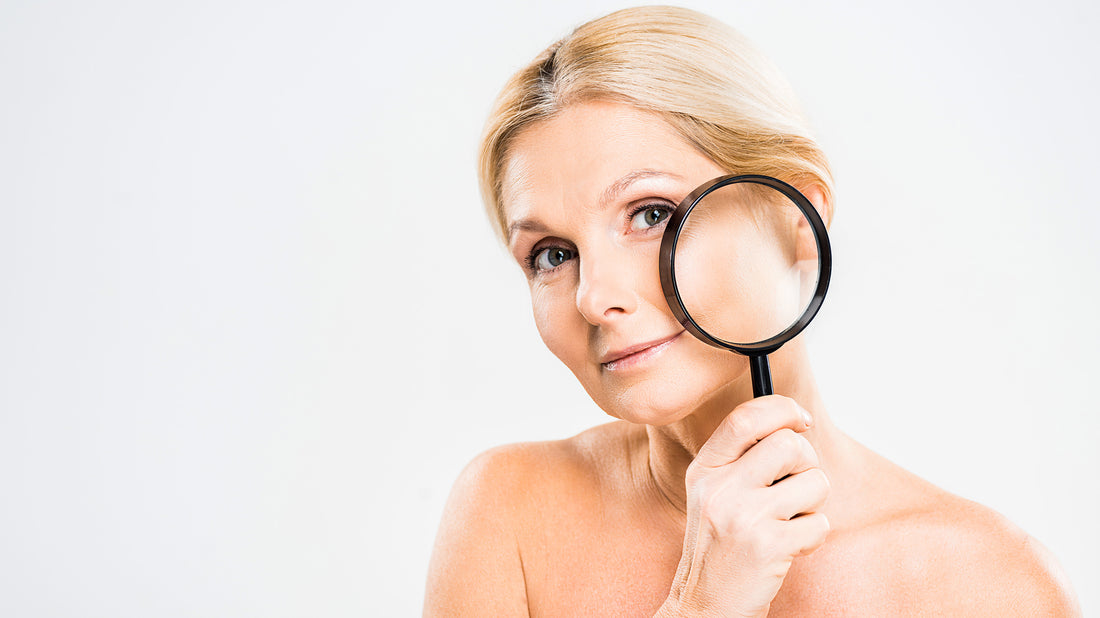
What is the microbiome?
The term "microbiome" includes the microbiota, its fragments, metabolites, and the environment surrounding them. Microbiota are living bacteria, fungi, and viruses on the epidermis. They are primarily symbiotic and commensal organisms. It is worth pointing out that pathogenic microorganisms also live in a small amount on the skin’s surface. The microbiological composition of the skin changes throughout life. It depends on many factors, including age, gender, lifestyle, and environment.
Role of the microbiome
A healthy microbiome is the basis of the skin's immune barrier. It is the first line of defense against pathogens, allergens, and other negative factors of the external environment. Microorganisms living on the skin’s surface are responsible for producing bacteriocins that inhibit the growth of pathogens. In addition, studies show that microorganisms on the skin help it regenerate and soothe irritations. Finally, they take part in the regulation of skin pH, which is very important in maintaining a healthy epidermal barrier.
Dysbiosis and its causes
Dysbiosis is a term that describes an imbalance in the microbiota. It is a reduction of the amount of symbiotic and commensal microorganisms and, at the same time, the development of pathogens. There can be many reasons for the imbalance. The most common are antibiotic therapy, UV radiation, and preservatives present in cosmetics and food. Additionally, a significant cause is an inadequate skincare. Too strong and frequent cleansing and failure to ensure proper skin hydration also lead to dysbiosis. Moreover, bad lifestyle such as chronic stress and a bad diet are important in skin microbiome changes.
Consequences of dysbiosis
Excessive growth of pathogenic microorganisms leads to a dysfunction of the skin barrier. It is causing increased skin sensitivity to environmental factors and susceptibility to allergies. The imbalance of the skin microbiome is associated with worsening symptoms in dermatological diseases such as atopic dermatitis, acne, rosacea, and psoriasis. Finally, skin dysbiosis also leads to premature aging.

Taking care of the healthy skin microbiome
The balanced composition of the skin microbiome can be supported by proper skincare. Tomorrowlabs HARMONIZING TONER regenerates natural skin’s pH that provides a healthy microbiome. It is also essential to ensure adequate skin hydration by using moisturizing products, such as Tomorrowlabs HYDRAGEL MOISTURIZER and/or BOOSTING SERUM. Additionally, it is important to use sunscreen daily. Tomorrowlab’s DAY CATALYST protects skin against UV radiation and provides intensive moisture.
Too frequent and intense cleansing of the skin, excessive exfoliation, and skin rubbing promote an imbalance of the skin microbiome. It is best to use gentle cleansing products, such as Tomorrowlabs FOAM CLEANSER or SENSITIVE FACE WASH, that will remove all impurities without disturbing the balance of the skin microbiome.
Additionally, it is worth giving up cosmetics containing ethyl alcohol.
Introducing cosmetics that contain probiotics and prebiotics can also be considered. However, it is worth noting that probiotic and prebiotic cosmetics currently do not have proven clinical effectiveness.
A healthy skin microbiome is characterized by various microorganisms' adequate amount and diversity. Numerous and still not fully known interactions between symbiotic, commensal, and pathogenic organisms play a significant role in the immune protection of the skin and its regeneration. Many factors can disrupt microbiome homeostasis. Taking care of its proper balance is particularly important in treating sensitive or allergic skin and dermatological conditions such as atopic dermatitis, acne, rosacea, and psoriasis.